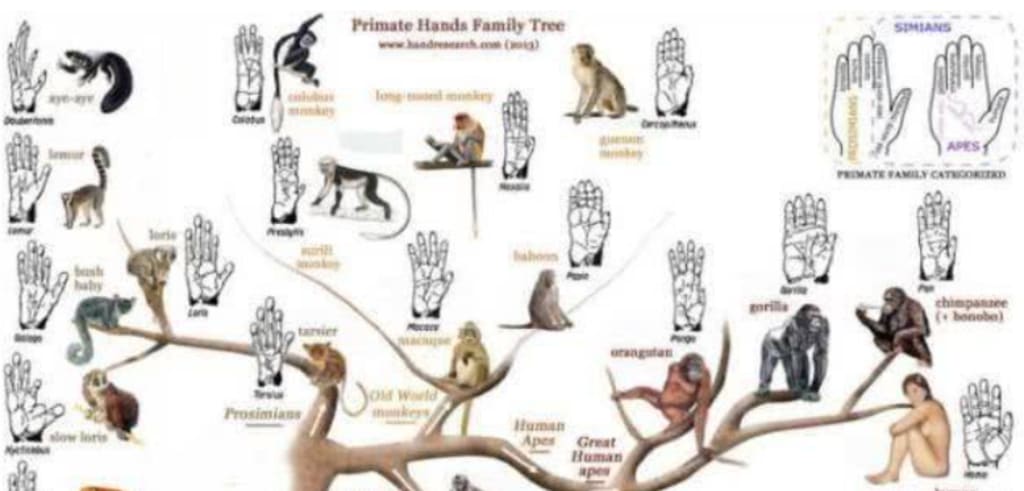Why are there no immortal creatures on Earth?
What prevents biological immortality?

If we had to pick one of the most misunderstood theories, it would be the theory of evolution. Therefore, some people always wonder why human beings do not evolve the ability to live forever.
In this case, we still have to start from the source of "evolution", that is, from the theory of evolution proposed by Darwin.
Evolution vs. evolution
In 1859, Darwin published the most important work in the history of biology, "The Origin of Species", this book is a very detailed description of Darwin's life's work: the theory of evolution.
The theory of evolution triggered a great shock in the whole academic circle at that time, and scholars were divided into two schools of thought for several great debates. At first, evolution was accepted by only some scholars, however, over 100 years, there are still one or two states left in the world that are not willing to include evolution as a point of knowledge in biology, but finally, they also compromised. In other words, after more than 100 years, evolution was finally popularized in high school and college biology textbooks and accepted by the entire mainstream scientific community.
Although evolution has been accepted by most people, many people have misconceptions about it. The word "evolution" seems to imply that the evolution of species has a direction. But Darwin did not describe such "directionality", and evolution is a mistranslation. His theory should be better called: evolution. Why do you say that?
Darwin was inspired by Malthusian population theory and took into account the influence of the environment on biological evolution.
So, Darwin got a model. He argued that organisms will overpopulate when natural resources are given. But the resources are limited, and this is when there is competition between organisms. In the process of biological reproduction, there are some mutant individuals, which provide diversity, and in the process of competition, those who are adapted to the environment have a greater probability of staying. Under natural selection, the characteristics of the adapted environment will gradually accumulate, that is, organisms are constantly evolving.
So, the direction of biological evolution is natural selection, and there is no higher or lower. For example, we know that dinosaurs became extinct 65 million years ago when an asteroid hit the Earth.
But it's not that the dinosaurs disappeared as soon as the asteroid hit the Earth. The fact is that over the next few million years, dinosaurs were gradually disappearing, or we could say evolving into the birds of today. With the disappearance of the dinosaurs, it was the mammals that dominated. So why were mammals spared from this catastrophe?
The main reason is that the mammals at that time are relatively small, and only need very little energy to survive, while the dinosaurs are very large, which in turn became their disadvantage. Due to the lack of energy supply, dinosaurs gradually disappeared.
So you see it's not the more combative, stronger, more biting species that will survive. The ones that survive are often the most adapted to their environment.
Why people have not evolved "immortality"
Instead of thinking that man has not evolved "immortality", let's think about why there are no creatures that can live forever.
The answer to this question is embedded in the evolutionary model described above. Let's imagine that if there is an immortal creature, the fact that it can exist means that it emerged through generations of mutant individuals, so the whole process is reproductive.
Immortal species through continuous reproduction, the number becomes more and more huge, this time, the entire planet's resources are not enough to support this species, which will still produce competition. Although under natural conditions, they all do not die. But they will destroy their kind through war and other means, otherwise, it is not enough to support their survival. Therefore, for the species that live forever, it is best not to reproduce.
Not only that, we go back to look at the "mutation", "mutation" actually provides the raw material for organisms to adapt to the environment, resulting in a diversity of species, and then under the conditions of natural selection, and eventually adapt to the environment to live.
If a species will not be selected by natural selection, this means that the frequency of various types of genes in the gene pool of the species will hardly change significantly. At this point, if some kind of virulent virus emerges, or if some kind of organism emerges that could wipe them out, it would be nothing short of a disaster, because, without species diversity, they would face devastation. Let's take an example, bananas are the most common fruit we see. Today's bananas are facing extinction, and this is because today's bananas are so genetically homogeneous that if they encounter an epidemic, they will become extinct.
Therefore, we will find that "immortality" and "reproduction" are contradictory to each other. For species, "immortality" and "no reproduction" will create genetic homogeneity, which will lead to extinction again. On the contrary, if the species reproduces, but does not live forever, it can accumulate species diversity through "mutation" and thus preserve the whole species by natural selection.
In addition, in this way, the aging and mature individuals can also serve to protect the younger ones, so that the continuation of the species can be guaranteed.
Conclusion
Therefore, we will find that not having immortality and reproduction is an optimal choice in the evolutionary process of organisms, and this optimal choice is from the perspective of the whole species, not a single individual. Immortality is only meaningful for the individual, for the whole species, it is simply a disaster. Therefore, even in the evolutionary process, the emergence of immortal species will be eliminated by natural selection and only those characteristics that can continue the species as a whole to be preserved.
About the Creator
Kim tyre
The water stirs the stone, and the man stirs the will.
Enjoyed the story? Support the Creator.
Subscribe for free to receive all their stories in your feed. You could also pledge your support or give them a one-off tip, letting them know you appreciate their work.






Comments
There are no comments for this story
Be the first to respond and start the conversation.